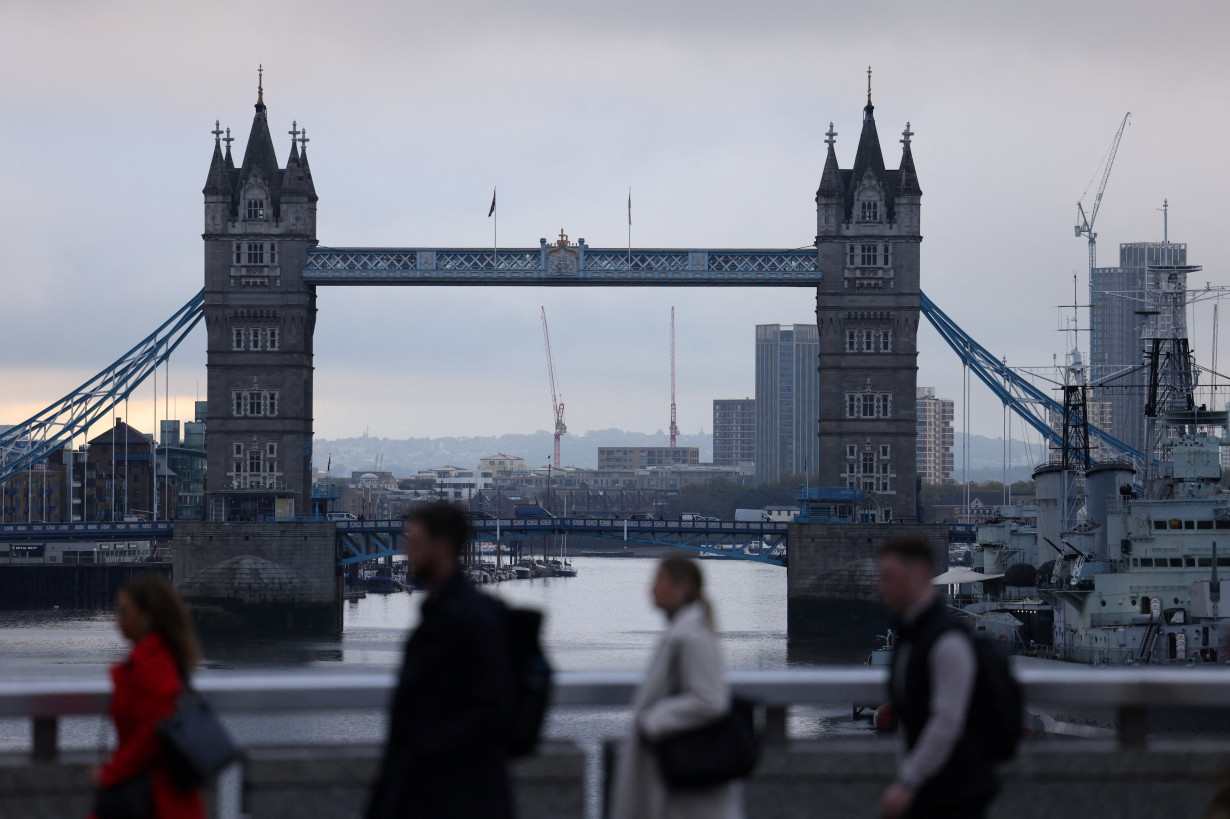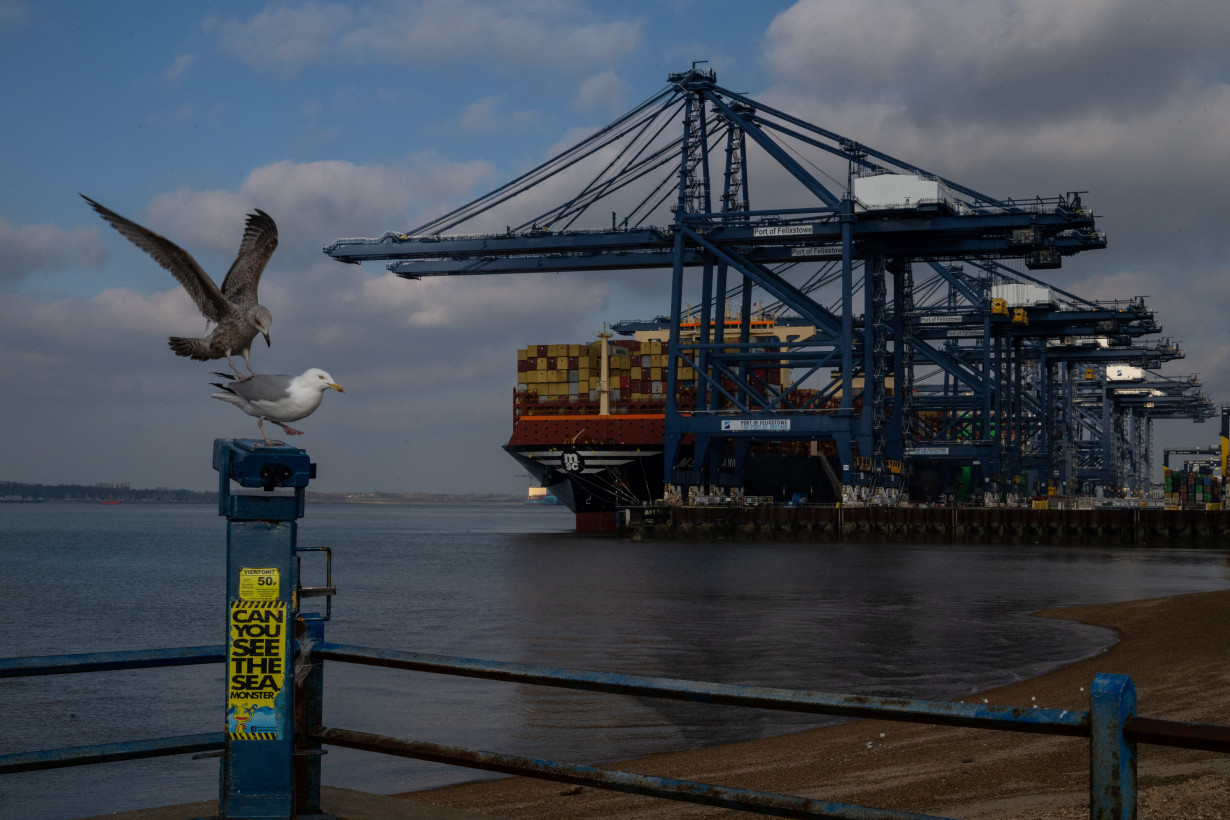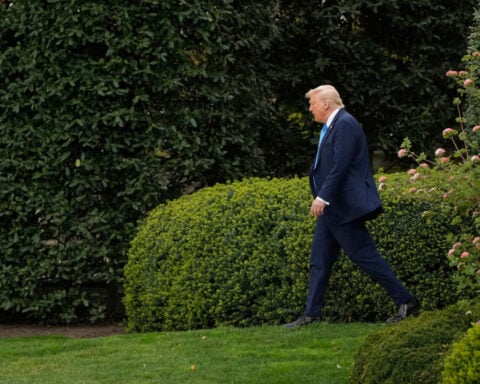By Kate Holton and William James
LONDON (Reuters) -U.S. President Donald Trump emerged as one of the biggest threats hanging over the British economy on Wednesday, when the country's fiscal watchdog said slow growth and a heavy debt burden made it especially vulnerable to his proposed tariffs.
Finance minister Rachel Reeves delivered a politically unpopular cut to the welfare budget and other reductions in her spending plans, all to keep the economy on track for a key fiscal target that was designed to reassure investors after short-lived former Prime Minister Liz Truss's market meltdown of 2022.

But the country's independent fiscal watchdog said a global trade war could reduce economic output, while a rise in Bank of England interest rates and gilt yield expectations could wipe out her small headroom against that fiscal target.
"If you are going to have 'iron-clad' fiscal rules then leaving yourself next to no headroom against them leaves you at the mercy of events," Paul Johnson, director of the Institute for Fiscal Studies think-tank, said.
Trump has said new reciprocal tariff rates will take effect on April 2 to punish countries that his administration deems to be blocking U.S. exports.
Britain's Office for Budget Responsibility watchdog said higher U.S. import tariffs would dampen UK economic activity beyond any direct impact on the country's exports.
The OBR said U.S. tariffs on its trade partners in general could cut the size of Britain's economy - which is highly exposed to swings in international trade - by as much as 1%.
Reeves and Prime Minister Keir Starmer have already been knocked off course since they were elected last July, promising a period of national renewal.
Rising debt costs and stagnant economic growth have forced them into unpalatable cuts and Reeves has come under heavy pressure from businesses after she used her first budget in October to hike taxes on employers.
But she has stuck to her plan, saying she needed to rebuild the public finances, and reduced payments to the elderly for heating costs before she set out welfare cuts on Wednesday that are expected to affect 3.2 million families.
VULNERABLE TO TRUMP
Her tough line could prove more difficult to maintain if Trump goes through with his threat to impose new tariff rates next week on countries around the world.
The OBR said a 0.6 percentage-point rise in BoE rates and gilt yield expectations across its five-year forecast period would eliminate the buffers that Reeves has built up against her fiscal target, forcing her back to the drawing board.
The OBR said even in a scenario where the United States imposed tariffs on China, Canada and Mexico and they retaliated, the British economy would be hit because of the uncertainty and weaker demand that would be unleashed.
Britain is trying to negotiate a tech-based deal with the United States, potentially sparing it the direct hit of tariffs on its own exports.
Reeves said Prime Minister Keir Starmer had built a good relationship with Trump and noted that trade had improved between the two countries the last time he was in power.
"We'll continue to make that case for free and open trade. Let's see where we get to in the next few weeks, but I recognise how important free and open trade is," she told a press conference.
The Liberal Democrats, the third-largest party in parliament, said Trump's tariffs risked leaving Reeves' plans in tatters: "This government is flying blind instead of coming up with a proper plan on how to protect our economy from this threat."
The budget update and the threat of tariffs reignited calls by some investors and economists for the government to take more drastic measures to tackle its debt pile, which is equivalent to around 95% of annual economic output, close to levels in the early 1960s when Britain was still working off the costs of World War Two.
They argue that Britain should increase taxes to reset the public finances, which have borne the costs of shocks from the 2008 financial crash, Brexit, COVID and the soaring energy prices that followed Russia's invasion of Ukraine.
The OBR said the government would borrow 47.6 billion pounds ($61.4 billion) more between now and the end of the decade than it had expected in a forecast made just five months ago.
This government is borrowing an awful lot," Johnson at the IFS said. "We are spending so much on debt interest at the moment, but borrowing even more."
He warned that the government could now be in for months of speculation over possible tax increases at Reeves' next full budget statement, expected in October or November. ($1 = 0.7756 pounds)
(Additional reporting by Andrew MacAskill, Andy Bruce and Sam Tabahriti; Editing by Alex Richardson)

 Trump has begun another trade war. Here's a timeline of how we got here
Trump has begun another trade war. Here's a timeline of how we got here
 Canada's leader laments lost friendship with US in town that sheltered stranded Americans after 9/11
Canada's leader laments lost friendship with US in town that sheltered stranded Americans after 9/11
 Chinese EV giant BYD's fourth-quarter profit leaps 73%
Chinese EV giant BYD's fourth-quarter profit leaps 73%
 You're an American in another land? Prepare to talk about the why and how of Trump 2.0
You're an American in another land? Prepare to talk about the why and how of Trump 2.0
 Chalk talk: Star power, top teams and No. 5 seeds headline the women's March Madness Sweet 16
Chalk talk: Star power, top teams and No. 5 seeds headline the women's March Madness Sweet 16
 Purdue returns to Sweet 16 with 76-62 win over McNeese in March Madness
Purdue returns to Sweet 16 with 76-62 win over McNeese in March Madness







